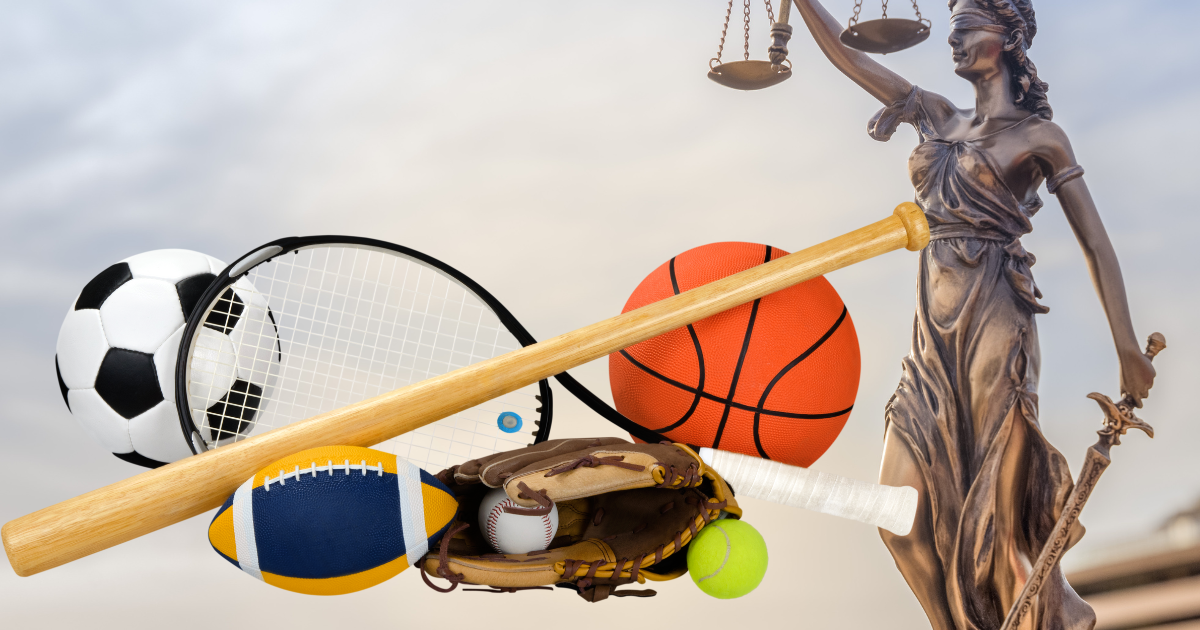Now Reading: The Dynamic World of Sports Law: Navigating the Legal Playing Field
-
01
The Dynamic World of Sports Law: Navigating the Legal Playing Field

The Dynamic World of Sports Law: Navigating the Legal Playing Field
Introduction
Sports have always been an integral part of human society, bringing people together to celebrate athleticism, competition, and teamwork. However, behind the excitement of the games, there exists a complex and evolving legal framework known as sports law. This multifaceted field encompasses a wide range of legal issues, from contract negotiations and intellectual property rights to doping scandals and player disputes. In this article, we will delve into the dynamic world of sports law, exploring its key components and the role it plays in shaping the sports industry.
The Evolution of Sports Law
Sports law has come a long way from its humble beginnings. Historically, it was primarily concerned with issues related to the integrity of the game, such as cheating and gambling. As sports grew in popularity and commercial value, so did the need for a more comprehensive legal framework. Today, sports law encompasses a wide range of legal disciplines, including contract law, labor law, antitrust law, intellectual property law, and more.
Key Components of Sports Law
1. Contract Law: Contract negotiations between athletes, teams, and sponsors are a fundamental aspect of sports law. These contracts outline the terms and conditions under which athletes compete, including salary, endorsements, and contractual obligations. Sports lawyers play a crucial role in ensuring that these agreements are fair and legally sound.
2. Labor Law: Labor disputes are common in the world of sports, with athletes often seeking better working conditions, fair compensation, and protection of their rights. Sports unions and collective bargaining agreements play a significant role in this area of sports law.
3. Antitrust Law: The sports industry has faced numerous antitrust challenges, particularly in relation to issues such as team relocation, broadcasting rights, and league expansion. Antitrust laws are designed to promote fair competition and prevent monopolistic practices within the sports industry.
4. Intellectual Property Law: Intellectual property rights are crucial in the sports world, covering trademarks, copyrights, and licensing agreements. Protecting team logos, player likenesses, and broadcasting rights is vital for maintaining the integrity of sports brands.
5. Doping and Anti-Doping Regulations: Ensuring fair play and the safety of athletes is a significant concern in sports law. Governing bodies like the World Anti-Doping Agency (WADA) enforce strict regulations to detect and deter the use of performance-enhancing substances.
6. Player Contracts and Transfers: Player contracts often involve complex negotiations, transfer fees, and dispute resolution mechanisms. Transfers between teams can be lucrative, leading to disputes over fees and contractual obligations.
7. Discipline and Ethics: Sports organizations have codes of conduct and ethics that athletes, coaches, and administrators must adhere to. Violations of these codes can result in disciplinary actions, such as fines or suspensions.
Challenges and Controversies
Sports law is not without its share of controversies and challenges. Some of the most notable issues in recent years include:
1. Concussion Litigation: Concerns over the long-term effects of concussions on athletes have led to numerous lawsuits against sports organizations. These cases raise questions about player safety and the duty of organizations to protect their athletes.
2. Athlete Protests and Freedom of Expression: Athletes have increasingly used their platforms to raise awareness of social and political issues. This has sparked debates about athletes’ rights to free expression and the boundaries between sports and activism.
3. Gender Equity: Gender discrimination issues persist in many sports, with disparities in pay, opportunities, and resources between male and female athletes. Legal challenges seek to address these disparities and promote gender equity in sports.
4. Gambling and Integrity: The rise of sports betting has raised concerns about the integrity of games and the potential for match-fixing. Sports law has a role in regulating and monitoring these activities.
Conclusion
Sports law is a dynamic and ever-evolving field that intersects with various aspects of our society, from business and entertainment to ethics and social justice. As the sports industry continues to grow and change, so too will the legal challenges and opportunities it presents. Sports lawyers and legal experts play a crucial role in navigating this complex and exciting legal playing field, ensuring that the spirit of competition and fair play remains at the heart of sports. Whether it’s negotiating player contracts, protecting intellectual property rights, or addressing pressing social issues, sports law will continue to shape the future of sports and the legal landscape that surrounds it.










